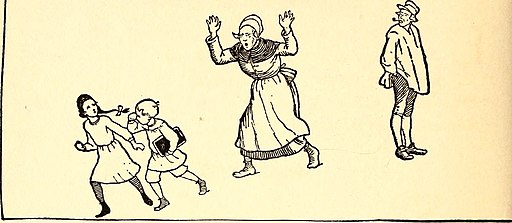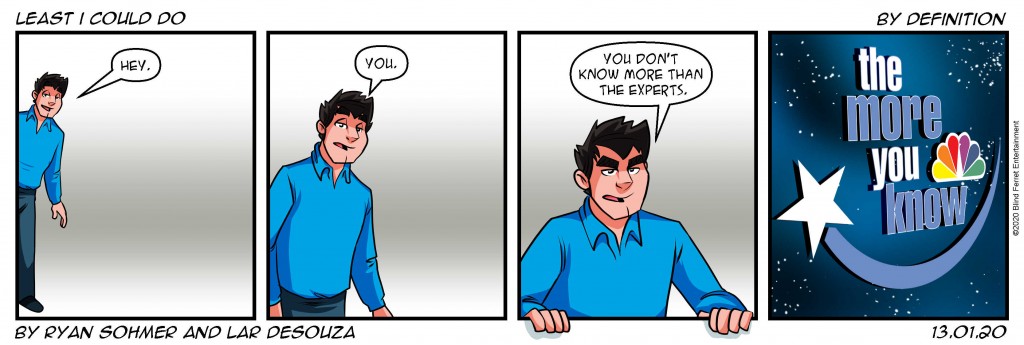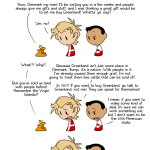
dru'el the chaotic
Shared posts
⎇001JW Novel now available - Justice Wing: Plan, Prototype, Produce, Perfect
The ⎇001JW Novel is now available! - Justice Wing: Plan, Prototype, Produce, Perfect
The first Justice Wing novel is finally available in both Amazon Kindle and Print! This is Justice Wing: Plan, Prototype, Produce, Perfect.
Content warning for the novel and description: this book contains adult language, allusions to and discussions of verbal abuse, and references (without description) to physical abuse of a child.
Dale Dodson, better known as Broadhead, was one of the very…

Have the Muppets Been Cancelled?
I’m sure you’ve heard it by now. The Muppets have been cancelled.
Fox News has reported that cancel culture came for The Muppet Show. Donald Trump Jr. tweeted that the “psychos” on the left had cancelled the Muppets, because there’s “nothing” they “won’t destroy.” The Muppets, they claim, are sacred, and now everyone and their uncle who owns a theater has something to say about liberals and snowflakes and safe spaces and Lew Zealand.
But wait, you’re saying. The Muppet Show isn’t cancelled. Jim Henson ended the show on his own terms, moving on to work on stuff like Fraggle Rock and Labyrinth. And it definitely isn’t being kept from us, because we can now watch 118 classic episodes right on Disney+ from the comfort of our own living rooms. So how is The Muppet Show cancelled?
Well, before certain episodes, there is a 15-second disclaimer.
It reads:
This program includes negative depictions and/or mistreatment of people or cultures. These stereotypes were wrong then and are wrong now. Rather than remove this content, we want to acknowledge its harmful impact, learn from it and spark conversation to create a more inclusive future together.
Disney is committed to creating stories with inspirational and aspirational themes that reflect the rich diversity of the human experience around the globe.
To learn more about how stories have impacted society visit: www.disney.com/storiesmatter
According to the worst people you know on the Internet, this is censorship.
Now, this is particularly strange to me, because I watched the Johnny Cash episode, which features this disclaimer, and the Confederate flag is still hanging proudly behind the Man in Black. And I’ve watched other episodes, and there’s still weird accents, jokes about Miss Piggy’s weight, spear-wielding natives, guns, and bombs. Link Hogthrob refuses to stop trying to kiss Fozzie Bear in drag. Gonzo hits on Big Bird in one episode, folks. This all happens.
So The Muppet Show hasn’t been censored. It hasn’t been cancelled. It’s right here, warts and all. What’s the deal? Well, let’s talk about this.
Is This Censorship?
OK, so first of all, a corporation refusing to show a piece of media to you isn’t censorship. A month ago, when there was no Muppet Show on Disney+, you couldn’t say that Disney had censored The Muppet Show from you. They just didn’t choose to make it available. Really, it’s not even censorship that Disney won’t release Song of the South. They just won’t release their own art, which is allowed. They also haven’t made Teamo Supremo available and no one’s complaining about that.
But even if you disagree with this definition, you have to agree that censorship doesn’t mean “you can watch over 100 full episodes of The Muppet Show except sometimes you first have to look at a disclaimer for 15 seconds.” People burned Salman Rushdie’s The Satanic Verses. They didn’t put 15 seconds of white text in front of it.
Why did Disney make a disclaimer? Well, the text says they love diversity. And look, Disney has its major faults, but we do live in a world where Moana, Black Panther, and Wendy Wu Homecoming Warrior all exist. Representation is good, folks, and stereotypes are bad. Being exposed to multiple cultures and multiple perspectives leads to more people feeling included, which ultimately leads to better art! And wouldn’t Jim Henson have wanted to educate people about diversity and inclusiveness? The man did a lot of that when he was alive. But if you really have a problem with all that, then sure, take a second and follow the money.
Disclaimers like this exist in part to remove fiscal liability. This disclaimer isn’t new on Disney+. It’s before Aladdin, one of Disney’s biggest financial successes ever, because of its often-negative portrayal of the Middle East. When I watched The Great Mouse Detective, a film where all the characters are singing mice or rats or this one octopus (for some reason), I was briefly warned that the movie features smoking. But in both cases, you can still watch the films. What these kind of disclaimers do is they point out that the company no longer espouses all of the values of the work. This way, no one can blame or boycott Disney for showing kids a mouse who smokes or a land called Agrabah. Disney can make money without worrying about tarnishing its brand’s values. It’s about liability.
Again, the show is still here. This really is no different from when Game of Thrones comes on TV and we’re told that viewer discretion is advised. No company wants to be responsible for people seeing things they don’t want to see, but they also do still want to give you Westeros or Wayne and Wanda.
But What About the Cuts?
It’s true. We’re all griping that the Disney+ upload of The Muppet Show features some cuts. As you’ve probably heard, two episodes (in the US, four episodes in Europe) have been cut entirely and several songs were cut from scattered episodes throughout. Ah-ha, you’re thinking! This is what Donald Trump Jr. means! This is how the Muppets have been cancelled!
I’m upset too: my favorite episode of all time, the Marty Feldman episode, has a key song cut from the closing sketch. But let’s take a closer look here.
Why are these sketches cut? Well, all the songs and one of the episodes have been axed for music rights issues. In other words, you won’t hear Scooter sing “There’s a New Sound,” but it isn’t because Disney wants to keep our vulnerable liberal minds from hearing what noises worms make. It’s because of corporate control of music rights, and the green at the bottom of everything (and no, I don’t mean Robin). Some deals are just too difficult to make in a way that’s cost- or time-effective. We don’t know the specifics and probably never will, but licensing conflicts always come down to corporate control of media. Which is, oddly enough, something you’d think Donald Trump Jr. and Fox News would be big into.
We can’t know for certain why the other episode was cut, but we can be very confident it’s because of its guest star, the exceedingly problematic Chris Langham. I won’t go into details here, (you can read our ToughPigs review for more information), but yes, this is probably an example of something being cut because of extremely unsavory implications. But we’re not talking about “unwoke dialogue.” We’re talking about criminals here. Is this censorship? One could argue it is, but this kind of move is nothing new and certainly not unsurprising. For instance, the episode of The Simpsons that guest-starred Michael Jackson isn’t on Disney+ either.
So again, not too bad.
But What About the Sacred Muppets?
But aren’t the Muppets sacred? If the Muppets aren’t good, what is? If the Muppets need to be censored, then what doesn’t??
First of all, I never realized Donald Trump Jr. was such a big Muppet fan. I don’t believe I ever saw him on the ToughPigs forum but I don’t know, maybe he and I chatted about Bear in the Big Blue House once.
But secondly, Fox News is claiming that they “don’t remember” the Muppets ever being problematic, and are joking that maybe the left will come for Sesame Street next. So let’s talk quickly, because I do remember the Muppets being problematic… to conservatives. In 2011, Fox News rallied against the Muppets’ return to cinemas because of it’s supposed anti-business message. Conservatives were offended by the idea of an evil oil baron named Tex Richman. Groups like One Million Moms fought against The Muppets sitcom for its adult humor.
And don’t even get me started about the Muppets’ “woker” cousins on Sesame Street, who have been the target of conservative ire for decades. I mean, in 2020 alone, conservatives said kids shouldn’t be exposed to Elmo’s daddy explaining protesting, a TV special about standing up to racism, and Billy Porter in a dress.
Why is it that it’s okay to say the Muppets need to edit themselves in these cases, but it’s bad to give people a 15 second disclaimer before an episode that features Spike Milligan giving a Nazi salute?
It’s always weird how this works. Maybe things are only sacred when they support the point you’re trying to make.
And if all these people really thought the Muppets were sacred, maybe they should have showed up and actually supported their film and television productions.
In Conclusion…
Have the Muppets been cancelled? No.
Is there a brief disclaimer before certain episodes that appears for less time than it takes to watch the unbearably long Marvel Studios logo before WandaVision? Yes.
Did some songs get cut, and does that stink? Yes.
But is that because of the so-called “woke brigade?” No.
So no, the Muppets haven’t been cancelled because they’re offensive. But lightning round: The Jim Henson Hour was cancelled in 1989 because no one liked Lighthouse Island. Muppets Tonight was cancelled in 1996 because no one thought Phil van Neuter was funny. And The Muppets was cancelled in 2016 because Fozzie dated the girl from Garfunkel and Oates.
And that’s that.
Click here to stop listening to Fox News and start listening to the ToughPigs forum!
by Evan G.
The post Have the Muppets Been Cancelled? appeared first on ToughPigs.
The Muppet Show: 40 Years Later – Brooke Shields
Original air date: October 18, 1980
I know there are quite a few Muppet fans out there who aren’t so big on the films Muppet Christmas Carol and Muppet Treasure Island. For them, there’s something about watching the crew take on roles that aren’t themselves, to tell an often already well known story, that just doesn’t work.
And yet, one has to agree that episode 506 of The Muppet Show is really a precursor to those films, in which the Muppets and Brooke Shields reenact Alice In Wonderland in 25 minutes. Granted, there are still backstage segments where everyone slips out of character, but the bulk of this episode is focused on Lewis Carroll’s classic story (or rather classic stories, since this episode draws from Wonderland and also Through the Looking Glass).
This episode does feel a bit odd in comparison to so many other Muppet Show episodes, but for a show that, at this point in the run, is on its fifth season, it’s nice to see them still taking risks and trying something new. And overall, I think this episode works wonders.
We get to see the characters take on the roles from this classic tale. Miss Piggy is (unsurprisingly) the Queen of Hearts, with Link Hogthrob as her King of Hearts. For the Mad Tea Party scene we’ve got Gonzo as the Mad Hatter, along with a Chicken as the Dormouse (and I know it’s supposed to just be a random chicken, but the fact that it’s performed by Jerry Nelson did make me go “IS CAMILLA TALKING??” in my rewatch). We’ve also got Floyd Pepper as the Caterpillar, Scooter and Rowlf as characters in the Jabberwocky poem, Statler and Waldorf as Tweedle Dee and Tweedle Dum, and Marvin Suggs as the Judge.
There are two other roles I’d really love to talk about in this episode. The first, of course, being Fozzie Bear who gets confused about the source material and spends the entire episode dressed as the Tin Woodsman from The Wizard of Oz. I don’t know what it is, but I find something so supremely charming about this mix up and Fozzie’s dedication to the costume. And finally, y’all, we need to talk about Dr. Teeth.
Dr. Teeth’s head on top of a cat’s body is so incredibly alarming if, like me, you forget that that’s part of the episode. It feels like something from a fever dream. I know we get Floyd on a Caterpillar’s body, but it’s the Dr. Teeth one I really can’t get over.
Brooke Shields is the guest star of this episode, portraying Alice in the story, and overall she’s pretty solid – especially when you consider how young she was at the time. There’s a quaintness to her performance, but there’s also a level of simplicity. She seems like she’s having a good time, but also is perhaps just a little stiff. But again, I think for this episode’s purpose she’s a perfect fit.
Since the episode is a retelling of Carroll’s book(s), there isn’t really a segment that stands out from the rest. Instead, the whole episode just stands out as a unit. There are certainly memorable bits – The Mad Tea Party and the ‘Falling Song’ scenes to name a couple – but overall this episode is a cohesive piece of art and it’s impossible to separate segments from one another, especially since there’s so much bleed over (namely Brooke’s size changing from one scene to the next). The Jabberwocky scene might be the most stand out bit of the entire episode, what with the imaginative characters and beautiful Jabberwocky puppet, not to mention the poem which I’ve always found to be cool.
I’ll also note quickly a moment with Piggy, who’s upset she doesn’t get to play the role of Alice. Piggy finds out that Brooke Shields has shrunk and then attempts to “accidentally” hop on Brooke to smoosh her. When you consider that Brooke Shields was a child at the time, it’s a bit more malicious. There’s also the moment at the end of ‘These Are The Yolks’ where Humpty falls off his wall and then proceeds to be trampled by the Kings’ men and a horse. So I guess this is just a trample heavy episode.
All in all, a stand out episode that I’d put up there with the best of The Muppet Show. It gave us a chance to see that the Muppets were capable of taking on a story and making it their own, which would then lead to the creation of several of their later productions.
Best Joke: Fozzie entering the Wonderland episode dressed as a character from Wizard of Oz and then telling Kermit he thought they were doing Peter Pan.
Lamest Joke: “I’m looking for a hole.” “A whole? A whole what?” “I hate smart Alices.”
MVM (Most Valuable Muppet): In an ensemble heavy episode, everyone really pulls their weight. But I’m gonna give it to Fozzie just because I love the idea of everyone agreeing to do a story-centric production and him showing up as a character from an entirely different book.
Most Classic Moment: Everything to do with the main plot of this episode feels like the most classic moment. Brooke Shields in the Alice dress surrounded by Muppets done up like the Wonderland crew feels so quintessentially Henson.
Should-Be-Classic Moment: The ‘Smiling’ medley the Muppets all sing to Fozzie to cheer him up.
First Appearance Of…: A lot of the Wonderland specific characters (the Jabberwocky, the White Rabbit, Humpty Dumpty, the March Hare, etc.) were built specifically for this episode, most of which we’d never see again!
Missed Opportunity: While the idea of making a chicken the Dormouse is funny, I’m surprised they didn’t make Rizzo or another rat the Dormouse instead.
Coolest Puppetry Effect: The use of the green screen in the Falling Song and Jabberwocky are cool. I love the image of the Muppets falling passed Alice, as well as when the Jabberwocky gets beheaded.
Obscure Character Watch: In the Jabberwocky segment, there are giant stilt-legged birds called Borogoves. One of those Borogoves appeared in episodes 509 and 510 as well.
Musical Highlight: Probably the Falling Song, but I want to give an honorary head nod when everyone breaks out into ‘Off To See the Wizard’ near the episode’s end.
One More Thing…: Brooke Shields was only 14 years old when filming this episode, making her the youngest ever Muppet Show guest star!
Okay, One More Thing…: During its entire run, The Muppet Show received twenty-one Emmy nominations. Malcolm Stone, one of the show’s art directors, would receive his second nomination for this episode, in particular for the backdrops based off of the illustrations of John Tenniel’s classic Alice art.
Click here to mix-up Wonderland & Oz on the Tough Pigs forum!
by Julia Gaskill
The post The Muppet Show: 40 Years Later – Brooke Shields appeared first on Muppet Fans Who Grew Up - Tough Pigs.
You never see it coming.

You never see it coming.
Saturday Morning Breakfast Cereal - Life

Click here to go see the bonus panel!
Hovertext:
300 years from now, a young mathematician looks up from a recent biography of Conway. 'What the hell is covid?'
Today's News:
Scott, who knows far far more here than I do, wrote a nice memoriam.
Republicans Are Straight up Admitting That Voting by Mail Would Be Bad for Them

Things in Georgia are a mess right now. Governor Brian Kemp apparently just discovered that people can carry coronavirus and not exhibit symptoms, and a “stay at home order” has just been put in place. That’s all bad but what’s far more pernicious is that the lawmakers in the state say they can’t further delay the May 19th Primary … and refuse to make it more accessible.
Georgia’s primary was already delayed once, and the secretary of state, Brad Raffenspergerm, has said that he lacks the authority under state law to delay it again. Fine. That means the state should pull out all the stops to get out absentee ballots or allow everyone to vote remotely, right?
Oh no. Because that would be bad for Republicans! Every Republican member of Georgia’s congressional delegation has signed on to a letter asking that the primary be delayed, rather than made accessible. This is in contrast to Democrats who want to open it up. But no, Georgia house speaker David Ralston, “said Wednesday that widespread use of absentee-by-mail voting in the primary would hurt Republican candidates,” according to the Atlanta Journal-Constitution.
These Republicans are admitting that having higher voter turnout, which vote by mail will guarantee, will hurt them. They’re just coming out and saying it now. And they’re echoing the most odious Republican in the land, Donald Trump. On a call into his Fox Friends, Trump all but admitted that more voting and vote by mail will mean doom for him.
Trump, on expanding voting: “They had levels of voting, that if you ever agreed to it you’d never have a Republican elected in this country again.” pic.twitter.com/ly4LYQqmo8
— Jacques Calonne (@JacquesCalonne) March 30, 2020
Republicans are in power thanks mainly to a three-pronged strategy of gerrymandering, misinformation and voter suppression. Take away any of those things and the Republicans know that their days are numbered.
And that may be literally true. Nancy Pelosi has stated that vote-by-mail provisions should be a part of the next coronavirus stimulus bill, and Republicans might not have much leverage in removing those provisions, especially now that they’re openly admitting that they just don’t want people to vote.
(image: Element5 Digital from Pexels, via AJC)
Want more stories like this? Become a subscriber and support the site!
—The Mary Sue has a strict comment policy that forbids, but is not limited to, personal insults toward anyone, hate speech, and trolling.—
Preview: Noisemakers Breaks Down Hedy Lamarr’s Scientific Work With Fantastic Art by Winifred Searle

One of my favorite trends in book publishing has been comics that explore the lives of important women throughout history. Soon, that will bring us Noisemakers: 25 Women Who Raised Their Voices & Changed the World from Knopf Books for Young Readers, featuring the work of contemporary cartoonists to discuss women who have used their voices to help change the world.
Noisemakers is the first ever book from Kazoo, the quarterly, indie print magazine for girls, ages 5 to 12, which Vogue calls ‘the magazine for little girls who want to grow up to be president,’ and Roxane Gay calls ‘kickass.’ Kazoo first made history in 2016 as the highest-funded journalism campaign Kickstarter had ever seen and again in 2019 when it became the first and only kids’ magazine ever to win the prestigious National Magazine Award for General Excellence (2019). ‘What sets Kazoo apart is that we celebrate girls for being smart, strong, fierce and true to themselves, and everything we do supports that mission,’ says Editor-in-Chief and founder Erin Bried. ‘Plus, it’s just really fun to read.’ Contributors have included Ruth Bader Ginsburg, Ellen DeGeneres, Misty Copeland, Elizabeth Warren, Dolores Huerta, Shonda Rhimes and many more.
Today, we are happy to share a preview of the upcoming book: the cover and table of contents, as well as an excerpt drawn by Sarah Winifred Searle (Sincerely, Harriet), written by Erin Bried, and covering the accomplishments of Hedy Lamarr, who was not only a Hollywood star but a brilliant inventor—truly, a woman who could do both.








Noisemakers his stores tomorrow, featuring over 200 pages of inspirational storytelling, including:
Mary Shelley by Emil Ferris (My Favorite Thing Is Monsters)
Hallie Daggett by Rosemary Valero-O’Connell (Laura Dean Keeps Breaking Up With Me)
Josephine Baker by Alitha E. Martinez (Black Panther: World of Wakanda)
Julia Child by Lucy Knisley (Kid Gloves: Nine Months of Careful Chaos)
Hedy Lamarr by Sarah Winifred Searle (Sincerely, Harriet)
Jeanne Baret by Lucy Bellwood (Baggywrinkles: a Lubber’s Guide to Life at Sea)
Wangari Maathai by Brittney Williams (Patsy Walker, A.K.A. Hellcat!)
Raye Montague by Yao Xiao (Everything Is Beautiful, And I’m Not Afraid)
Eleanor Roosevelt by Emily Flake (Lulu Eightball)
Bessie Coleman by Shannon Wright (Betty Before X)
Ida Lewis by Rebecca Mock (Compass South)
Rosa Parks by Ashley A. Woods (Tomb Raider: Survivor’s Crusade)
Eugenie Clark by Maris Wicks (Primates)
Mary Anning by Little Corvus (The Bridge: How the Roeblings Connected Brooklyn to New York)
Caroline Herschel by Chan Chau (Jim Henson’s The Storyteller: Sirens)
Emily Warren Roebling by Kiku Hughes (Displacement)
Madam C. J. Walker by K. L. Ricks (Naima)
Annie Londonderry by Kat Leyh (Lumberjanes)
Maria Tallchief by Weshoyot Alvitre (Alice Sixkiller)
Junko Tabei by MariNaomi (Dragon’s Breath and Other True Stories)
Frida Kahlo by Naomi Franquiz (The Unbeatable Squirrel Girl)
Maya Angelou by Shauna J. Grant (Princess Love Pon)
Kate Warne by Molly Brooks (Sanity & Tallulah)
Nelly Bly by Jackie Roche (Escape from Syria)
Mother Jones by Sophie Goldstein (House of Women)
(image: Knopf Books for Young Readers)
Want more stories like this? Become a subscriber and support the site!
—The Mary Sue has a strict comment policy that forbids, but is not limited to, personal insults toward anyone, hate speech, and trolling.—
RIP Monty Python’s Terry Jones
We’re saddened to learn that founding member of Monty Python and British comedy legend Terry Jones has sadly passed away. You’ve seen him in dozens of roles in Monty Python and the Holy Grail, The Life of Brian, and of course, Monty Python’s Flying Circus.
But that’s not all – Terry Jones was instrumental in the classic Jim Henson film Labyrinth. Jones wrote the screenplay for the movie, working closely with Jim Henson and providing most of the humor you see in the film today. He also co-wrote the book “The Goblins of Labyrinth” with Brian Froud.
Here’s Terry Jones himself to talk about his work on Labyrinth:
The comedy world lost a legend today, and we’re proud to remember Terry Jones as an important player in Muppet history, and that Labyrinth wouldn’t be anywhere near as wonderful without his contribution.
Click here to help us remember Terry Jones on the ToughPigs forum!
by Joe Hennes – Joe@ToughPigs.com
The post RIP Monty Python’s Terry Jones appeared first on Muppet Fans Who Grew Up - Tough Pigs.
Saturday Morning Breakfast Cereal - Coffee

Click here to go see the bonus panel!
Hovertext:
I need to do a book of just comics that end with God laughing.
Today's News:
GIL 9/15 “Quarter Past”
dru'el the chaoticI've heard this one live, between kids hanging out in a mall
Some American phrases
This is a continuation of the subject broached cautiously on July 17, 2019. Since the comments were supportive, I’ll continue in the same vein. Perhaps it should first be mentioned that sometimes the line separating language study from the study of history, customs, and rituals is thin. For example, there was (perhaps still is) the British English phrase to hang out the broom. It meant “to invite guests in the wife’s absence,” while in other situations the same phrase referred to a working girl’s desire to get married. (See the post of February 10, 2016 on it.) There is nothing here for the linguist to do: all the words are clear, and the meaning is known. One has to discover why the custom of hanging out the broom indicated such unexpected things. This is what so-called antiquaries try to do. In fact, most idioms, unless they contain incomprehensible words like brunt and lurch, are of this type.
Consider the phrase blue plate lunch(eon). Wikipedia has an article about it, but I can add something to what it says. Blue plate special first referrred to a low-priced meal that usually changed daily. The name “may well have come from the over-popular ‘willow pattern’ of the chinaware.” (All my quotes have been borrowed from Notes and Queries and American Notes and Queries.) It still remains somewhat unclear “when designers introduced the theoretically excellent, but actually disturbing, practice of dividing a large luncheon plate into compartments.”
A correspondent, who sent a letter to ANQ in 1945, wrote that the source of this expression may perhaps be found in the description of Forefathers’ Day, a New England tradition first observed in December, 1798. It later became customary to eat from huge blue dinner plates specially made by Enoch Wood & Sons of Staffordshire. One can see that here, as in the case of hanging out the broom, we deal with a custom. Yet both phrases are indeed idioms, because the knowledge of their components won’t help an outsider to understand the whole.
Many years ago, we rented a cabin in northern Minnesota. The owner was a handyman who owned an establishment called “Let George do it.” His name was indeed George, and I found the sign ingenious and clever. Only much later did I learn that the phrase let George do it means “let somebody else do this work.” I’ll now reproduce part of the letter from the New York Public Library, addressed to Notes and Queries in 1923. The expression “has in the last ten or dozen years become current in America. Especially during the [First World] War was it in common use. We are interested to learn if there is any foundation to the statement that this phrase is of English origin. We know that the French have employed for several centuries a very similar expression, ‘Laissez faire à George, il est home d’âge’ [‘Let George do it; he is a grownup man’], which they trace back to Louis XII. Has such an expression been used in England, and if so, is there any explanation of its origin known to you or your readers?”


The question has never been answered. The OED found the first occurrence of the phrase in print in 1909. This is exactly the date the letter writer had in mind. By the way, while working on my prospective dictionary of idioms, I made a list of questions in Notes and Queries that produced no replies. The list is instructive. I still have no idea whether let George do it is an Americanism or whether it only flourished on American soil (if so, why so late?), and what it has to do with its French analog. It does not appear in English dictionaries of familiar quotations. On the Internet, one can find some informative correspondence about the origin of the phrase. But the sought-after etymology is lost. Perhaps some of our readers know something about the matter. Their suggestions are welcome.
If I am not mistaken, the next two phrases are not in the OED. As I read in a 1909 publication, “the American phrase seven by nine is generally applied to a laugh or smile of latitude more than usually benign, as if meaning the length and width thereof and at the same time playing upon the word benign.” (Is the reference to benign an example of folk etymology?) I would like to mention a problem with words and expression called American in dictionaries. They produce the impression that all English speakers in the United States know them. Yet this term is a trap into which unwary foreigners who try to learn “real American” from books often fall. They use such words and idioms and don’t realize that they may have stumbled upon a piece of local or forgotten usage or slang. For example, now, more than half a century after the radio show “Let George do it,” young people seldom recognize the collocation.
In any case, at the beginning of the twentieth century, the American phrase a seven by nine politician existed. Here is a commentary from a Connecticut Yankee, if I may plagiarize Mark Twain. The phrase is said to apply to a man “of too limited abilities, force, or outlook to cut much of any. [It] refers to the old-fashioned windowpanes, before the time when glass filling the whole or half of the sash was common; these were ‘seven by nine’ in hundreds of thousands of farm or village houses…. Its nearest synonym is ‘peanut’ politician, that is, bearing the same relation to large political ideas and plans as a peanut vendor, or huckster of peanuts and roast chestnuts in a pushcart, does to large mercantile activities. Neither name implies a low position or importance: only the pettiness of the issues which can form the staple of the activities…. Similar names are ‘two-cent’ or ‘two-for-a cent’ (‘ha-penny’ comes just between) or huckleberry (‘whortleberry’) politician: the last having the same implication as ‘peanut’—one peddles huckleberries by the quart.”
What a rich display of dated slang! Peanuts do not fare too well in American English: cheap payments are “just peanuts,” and peanut politics, that is, “petty politics” (often with reference to corruption) is a phrase one can still hear around. The explanation quoted above may very well be correct, but I notice with some unease that seven and nine are the favorites of numerous idioms and folklore, and here they occur in what was known a hundred years ago, and in an entirely different context, as entente cordiale. See the posts for April 6, 2016 and June 19, 2019. Does the phase seven by nine really have an ascertainable foundation in reality, or is the use of seven and nine in it as mysterious as in nine tailors make a man and seven-league boots?

The unresolved riddle of the phrase let George do it again reminds us of the fact that many typical American words and expression were coined in England, came into desuetude there, but survived in the New World. That is why the definition of an Americanism is often ambiguous. Compare what I wrote about the idiom to get down to brass tacks in April 15, 2015.
I would like to repeat that, if my discussion of American idioms presents interest, I may perhaps write one more such essay in the nearest future.
Feature image credit: Daderot, public domain via Wikimedia Commons.
The post Some American phrases appeared first on OUPblog.
Cameo Wood, Filmmaker

Our guest this week is Cameo Wood. Cameo is an EMMY nominated filmmaker. She is also a former tech founder, founded an urban beekeeping store, was the first to perform Turing’s Original Imitation Game experiment, and has completed grad programs in Egyptology and Medical Neuroscience.
Subscribe to the Cool Tools Show on iTunes | RSS | Transcript | Download MP3 | See all the Cool Tools Show posts on a single page
Show notes:

Moment Anamorphic Lens ($150)
There’s a company called Moment and what they do is they create incredibly high quality lenses for photography, or for filmmaking. They have this new one called an anamorphic lens which has incredibly high quality glass, and you can just pop this right on your iPhone, and capture beautiful images. An anamorphic lens is a very high quality type of lens. Whenever you see a film and you see this beautiful, incredibly in-depth, sort of rich looking video, and horizontal lens flares in like this widescreen letterbox look, that’s indicative of being an anamorphic lens. With this you can get all the lens flares that you want and this beautiful widescreen letterbox look. They have their own app, the Moment filmmaking app, so you can control aperture, and all different kinds of frame rates to really create cinematic looking video just from your iPhone, and it’s just absolutely beautiful.

Peak Design Black Slide Camera Strap ($65)
I really like Peak Design’s other products like their backpacks, and bags, they’re very popular here in the Bay area, but I found this thing called the slide. So, it looks like a regular camera strap, and where you would connect the strap to the camera, instead of having something that is permanently attached, it just has these clips. The clips are basically strings of incredibly strong material that attach to your camera using these little circular dongles hanging off your camera. When I was recently in Egypt, I was bringing my iPhone, and a mirror, this camera, and a DSLR. So rather than just having numerous camera straps which I’ve done in the past, I decided instead to just have one strap, and all of my cameras have the these little dongle clips attached to them, so that I could just pull the camera out of my bag, snap it into my strap, and go. And again, it only takes 10 seconds or so to just clip them in, and I found the entire system incredibly easy to use. I never had any problems with being able to get the clips on, or off, and I never had any failures where the clip failed. So, I found this incredibly useful.

myCharge 10050mAh portable charger ($90)
I understand that everyone has their favorite charger. I just happened to randomly get this charger while I was in an airport, and I had forgotten whichever one I usually had at that time, and now I have two, or three of these. So, this particular charger looks sort of like a small silver brick that we’ve sort of become familiar with. It’s silver, it sort of has the shape of a book, and it is a 4.6 inches, by 2.8 inches, by around one inch, and it weighs about one pound. I love this thing because one, I don’t need to find a plug, it doesn’t have anything extra, it just has a little flip down wall plug. I just plug it into any wall, it has two cables built into it, so it has an iPhone cable, which I use an iPhone, and it also has a micro USB, so I can charge other people’s stuff, and in the bottom of it, it has just a regular USB plug, so I can plug any kind of USB device into it. It’s 10,050 milliamp hours, so it can charge my iPhone, my iPad fully, multiple times. I’ve been in film festivals where I’ve been waiting for the next film, and everyone’s phone is dying, and so I’ve been able to charge like three phones at a time on this while we’re all waiting in line. So, especially on things like international flights where sometimes the in-seat charging isn’t working, I’m able to watch movies, and do all kinds of work just using one, or two of these. I find them just massively useful, especially when I’m traveling in the outback.

Folding heavy-duty bags ($25/3pk)
I’ve been using these folding heavy duty bags for about three years now, and these are super low tech, but they are amazing. They’re sort of almost cubes, they fold incredibly small, they have a solid piece of plastic built into the bottom that folds down, so that it has a solid bottom. They can carry up to about 45, 50 pounds in each. I can use these for carrying heavy liquids around, I use them at home, because they’re rectangular enough that you can sort of stack them, and whenever I have donations, I can load those in and fill them with cans, I can use them for absolutely anything. Every time I go to the grocery store, all the packers are like, “These are amazing. These are the best bags I’ve ever seen.”
Also mentioned:

EMMY nominated short film Real Artists
I made a film about two years ago now called Real Artists. Real Artists is a film about a young woman who is interviewing at her dream job at an animation studio, and finds that films are no longer made entirely by people. It touches on artificial intelligence, and memory erasing drugs.
We have hired professional editors to help create our weekly podcasts and video reviews. So far, Cool Tools listeners have pledged $400 a month. Please consider supporting us on Patreon. We have great rewards for people who contribute! If you would like to make a one-time donation, you can do so using this link: https://paypal.me/cooltools.– MF
Good Ominous – DORK TOWER 04.06.19
Dork Tower is updated Tuesdays and Thursdays. For as little as $1 a month, you can join the Army of Dorkness – and help bring more Dork Tower to the world! We’re nearly 80% of the way towards three comics a week! Become a Dork Tower Patreon backer – you get everlasting gratitude. Oh, wait – and also swag!
Saturday Morning Breakfast Cereal - Stress

Click here to go see the bonus panel!
Hovertext:
Honestly, do brains ever actually help with anything other than breathing?
Today's News:
How to Read a Sake Label, Part 1: Ginjo Explained

Sake is a captivating beverage. For me, part of its allure lies in its diversity of style: sake can taste rich and savory or delicate and fruity, can be served chilled or piping hot, and is equally at home in a crystal wine glass or an unassuming ceramic tumbler. It can even be aged (called koshu), made into a dessert beverage (called kijoshu), or see a cedar-barrel finish (called taru-zake). Getting comfortable with sake is highly rewarding, as there is much to appreciate in this underrepresented category.
Whenever I share my love of sake with friends I hear two common views: “Isn’t sake only drunk with sushi?” or “I’m curious about it, but the Japanese labels and terms are intimidating!” Sake and food pairing principles are for another post, but for now I’ll say that sake is one of the most food-friendly beverages on the planet. Try a warm kimoto junmai with lasagna or pesto sometime, when you do it’s hard to go back to wine. It’s also amazing with cheese, as evidenced here and here.
Today’s post will focus on remedying some of the frustration of interpreting a sake label. The first thing to know is that reading the label is not hard once you know a handful of key words. But before I define these terms, it is important to understand that too often people equate them with a quality pyramid. For example, don’t think of junmai ginjo as “higher quality” than junmai. These are two different styles of sake, like white wine and red wine or stout and pale ale. While the lines are blurry, it is best to think of them as distinct.
I think of sake styles in terms of the “old-style” and “new-style,” like old-world and new-world wine. Old-style sake tastes savory with grainy flavors and has been around for centuries, while new-style sake is fruitier has been on the market for only about four decades. The key word to tip you off that you are drinking the new stuff is “ginjo.”
Ginjo Sake encompasses four terms: ginjo, daiginjo, junmai ginjo, and junmai daiginjo. You’ll notice that the permutations stem from the presence or absence of “dai” and “junmai,” so let’s unpack their meanings:
Ginjo translates to “scrutinized fermentation,” a reference to the fastidious methods used to brew the style not employed with old-style sake. It is made from rice polished more heavily than old-style sake, to a minimum of 60%, and fermented with modern yeast varieties that ferment cooler over a longer period. The result is a sake with fruit-forward aromatics and a delicate structure to be served either room temperature or chilled.
Dai translates to “greater.” Legally a Daiginjo sake must use rice polished to a minimum of 50%, but philosophically a brewer’s Daiginjo is the pinnacle of their craft. It is like the “family reserve,” to make another wine analogy. If you are unfamiliar with rice polishing and why it is important, consider this: sake rice varieties have an opaque white center that is almost all starch, which is what is needed for fermentation. Surrounding that starchy center are fats, proteins, and minerals which can cause off-flavors and a rough texture if present in high quantities. Before brewing commences, these non-starch components are removed by running the raw rice through a milling machine that polishes them away. In short, the more the rice is polished, the cleaner and more refined the sake will taste.
Junmai translates to “pure rice.” This term refers to a decision made in the brewing process; after fermentation but before pressing, a brewer is allowed to add “jozo” alcohol to the sake. Jozo alcohol is a neutral spirit, usually distilled from sugarcane. If ginjo sake is brewed without this alcohol addition, it is called Junmai Ginjo. Why add jozo alcohol? It does not contribute flavor nor does it increase the sake’s alcohol content, as almost every sake is diluted with water before bottling. What it does do is help extract flavor from the rice while thinning structural elements such as acidity, amino acid content, body, sweetness, and length of finish.
Now that you know all about ginjo, I encourage you to try a couple examples. Tedorigawa’s “Lady Luck” Daiginjo is light-bodied with a crisp finish, a perfect example of the style. A great contrast is Kikusui’s Junmai Ginjo, which is pictured above: it’s fruity with flavors of cantaloupe, banana, orange, and sweet mochi. It will taste fuller and sweeter than the Tedorigawa, which is to be expected when comparing a Junmai Ginjo to a Daiginjo.
Let us know what you think, while we work on part 2 of this deep dive into sake.
The post How to Read a Sake Label, Part 1: Ginjo Explained appeared first on Drinkhacker: The Insider's Guide to Good Drinking.
Saturday Morning Breakfast Cereal - Transaction

Click here to go see the bonus panel!
Hovertext:
I like to imagine Jesus has tried a second coming literally hundreds of times and it just keeps getting thwarted.
Today's News:



















